Terrorism




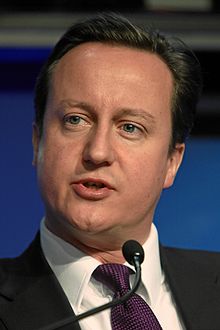
-David Cameron


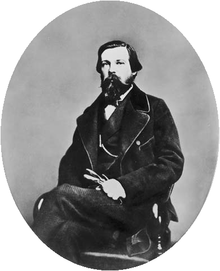



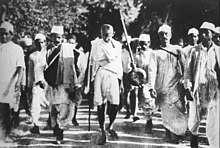


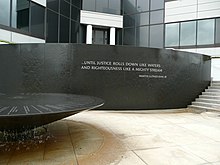
The remaining attacks, the web site said, “were driven by left-wing ideologies … and Islamic extremism.” ~ Bill Morlin



I feel my body, desperate to know whether I’m still alive.
-Suman Pokhrel


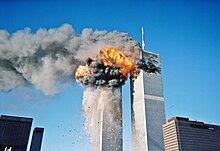
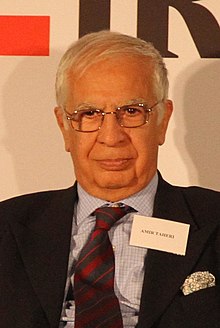
-Amir Taheri

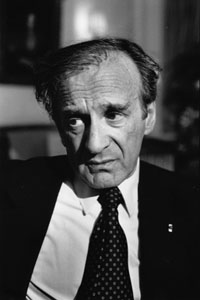


Terrorism is an act designed to terrorize. In its most common usage, it usually refers to a violent act committed by private individuals against civilian targets in order to influence or bring about a certain outcome, usually political in nature.
A
[edit]- First of all, it's not being ruthless it is about being genuine, it is about the real intentions, it is about being serious, it is about having the will. The United States doesn't have the will to defeat the terrorists. It has the will to control them and to use them as "the cards", as they did in Afghanistan that would be reflected of military aspects for the issue, if you want to compare more than a hundred and twenty or thirty Russian airstrikes to few areas in Syrian compare to ten or twelve American allies' airstrike in Syria and Iraq, it means militarily nothing! but that military ineffectiveness is a reflection of the political will.
- In recent years, the FBI observed a decline in its ability to access to the content of both domestic and international terrorist communications, due to the widespread adoption of encryption for Internet traffic and the prevalence of mobile messaging apps using end-to-end encryption as default. In many places, we have effectively “gone dark.”
As a private citizen, I certainly appreciate encryption’s increase in the overall safety and security of the Internet for users. But in fulfilling the FBI’s duty to the American people to prevent acts of terrorism, encryption creates serious challenges. Accessing content of communications by, or data held by, known or suspected terrorists pursuant to judicially authorized, warranted legal process is getting more and more difficult.
If law enforcement loses the ability to detect criminal activity because communication between subjects—data in motion—or data held by subjects —data at rest—is encrypted in such a way making content inaccessible, even with a lawful order, our ability to protect the American people will be degraded. I believe there are solutions providers could deploy which would provide safety and security to those using the Internet while also contributing to the FBI’s ability to prevent and investigate terrorism and other criminal acts like child exploitation and cybercrimes.- Matthew Alcoke, "The Evolving and Persistent Terrorism Threat to the Homeland". Federal Bureau of Investigation. (November 19, 2019)
- Terrorism thrives on administrative violence and injustice; that is the only atmosphere in which it can thrive and grow. It sometimes follows the example of indiscriminate violence from above; it sometimes, though very rarely, sets it from below. But the power above which follows the example from below is on the way to committing suicide.
- Sri Aurobindo, July 24, 1909, quoted from Sri Aurobindo, ., Nahar, S., Aurobindo, ., & Institut de recherches évolutives (Paris). India's rebirth: A selection from Sri Aurobindo's writing, talks and speeches. Paris: Institut de Recherches Evolutives. 3rd Edition (2000).
B
[edit]- That is why despite its imperfections, the European Union can be, and indeed is, a powerful inspiration for many around the world. Because the challenges faced from one region to the other may differ in scale but they do not differ in nature. We all share the same planet. Poverty, organised crime, terrorism, climate change: these are problems that do not respect national borders. We share the same aspirations and universal values: these are progressively taking root in a growing number of countries all over the world. We share “l’irréductible humain”, the irreducible uniqueness of the human being. Beyond our nation, beyond our continent, we are all part of one mankind. Jean Monnet, ends his Memoirs with these words: “Les nations souveraines du passé ne sont plus le cadre où peuvent se résoudre les problèmes du présent. Et la communauté elle-même n’est qu’un étape vers les formes d’organisation du monde de demain.” (“The sovereign nations of the past can no longer solve the problems of the present. And the [European] Community itself is only a stage on the way to the organised world of the future.”) This federalist and cosmopolitan vision is one of the most important contributions that the European Union can bring to a global order in the making.
- José Manuel Barroso, Nobel Peace Prize Lecture of the European Union, 10 December 2012
- The record clearly shows that jihadists see the run-up to an election and the months just afterward as an opportune time to act.
Everyone remembers the Bin Laden video that was released days before the 2004 presidential election and the Madrid train-station bombings that occurred 72 hours before Spain’s national elections in March of that year. When the conservative government of José María Aznar mistakenly attributed the attacks to Basque separatists, the public punished his party, which was felt to be pretending that its unpopular support for the war in Iraq had nothing to do with the attacks. The socialists, led by José Luis Rodríguez Zapatero, had been trailing in the polls, but after the government’s blunder, they thumped the conservatives by a five-point margin.
Those are only the best-known jihadist interventions. Alongside them should be added the first bombing of the World Trade Center on Feb. 26, 1993, a little more than a month after Bill Clinton took office, and the attack on the USS Cole on Oct. 12, 2000, three weeks before that year’s Bush-Gore matchup. Last year, radicals attempted multiple car bombings in London and Glasgow, Scotland, three days after Gordon Brown’s June 27 installation as Britain’s prime minister. And let’s not forget the murder of Benazir Bhutto while she was campaigning in Pakistan or the September 2004 bombing of the Australian Embassy in Jakarta, Indonesia, which preceded the Australian elections by a month.
What makes elections and transitions so attractive to terrorists? After the October 2004 Bin Laden video was released, I wrote here about jihadists’ need to leave their fingerprints on big events. These are the seam moments, the points of inflection in history, and the terrorists want to demonstrate that they are central players in determining outcomes. They especially want to show their Muslim audience that they are having a powerful impact on the world stage and are the global actors they claim to be. Do they try to tilt events to help preferred candidates or parties? There isn’t much evidence to support that—and the terrorists seem to have some regard for the law of unintended consequences, so I don’t think they believe they can act with sufficient precision to ensure, for example, a victory for McCain or Obama. (The outcome of the 2004 Spanish election was a freak event; no one could have predicted that Aznar’s government would have botched its reaction to the bombings.)- Daniel Benjamin, “Why Do Terrorists Love To Strike Around Elections?”, Brookings.edu, (October 22, 2008)
- They say they believe in freedom and share our values. They say a few bad apples shouldn’t bring down judgment on their entire kind. Don’t be fooled. Though they walk among us with impunity, they are, in the words of Henry Farrell, a political scientist at George Washington University, “a group that is notoriously associated with terrorist violence and fundamentalist political beliefs.”
They are engineers.
Farrell, of course, was kidding. He posted that comment on a blog shortly after Umar Farouk Abdulmutallab (confessed Al Qaeda operative and engineering student) tried to blow up an airliner over Detroit last winter. But the satire was rooted in a statistical fact: in the ranks of captured and confessed terrorists, engineers and engineering students are significantly overrepresented. Maybe that’s a numerological accident. The sociologist Diego Gambetta and the political scientist Steffen Hertog don’t think so.- David Berreby, "Engineering Terror", New York Times, (Sept. 10, 2010).
- I know there are several countries - mostly dictatorships with highly repressive regimes - desperately trying to acquire chemical weapons, biological weapons or, in particular, nuclear weapons capability. Some of these countries are now a short time away from having a serviceable nuclear weapon. This activity is not diminishing. It is increasing. We all know that there are terrorist cells now operating in most major countries. Just as in the last two years, around 20 different nations have suffered serious terrorist outrages. Thousands have died in them. The purpose of terrorism lies not just in the violent act itself. It is in producing terror. It sets out to inflame, to divide, to produce consequences which they then use to justify further terror. Round the world it now poisons the chances of political progress: in the Middle East; in Kashmir; in Chechnya; in Africa. The removal of the Taliban in Afghanistan dealt it a blow. But it has not gone away. And these two threats have different motives and different origins but they share one basic common view: they detest the freedom, democracy and tolerance that are the hallmarks of our way of life. At the moment, I accept that association between them is loose. But it is hardening. And the possibility of the two coming together - of terrorist groups in possession of WMD, even of a so-called dirty radiological bomb is now, in my judgement, a real and present danger.
- Terrorism is defined as political violence in an asymmetrical conflict that is designed to induce terror and psychic fear (sometimes indiscriminate) through the violent victimization and destruction of noncombatant targets (sometimes iconic symbols). Such acts are meant to send a message from an illicit clandestine organization. The purpose of terrorism is to exploit the media in order to achieve maximum attainable publicity as an amplifying force multiplier in order to influence the targeted audience(s) in order to reach short- and midterm political goals and/or desired long-term end states.
- Carsten Bockstette, (2008). "Jihadist Terrorist Use of Strategic Communication Management Techniques" (PDF). George C. Marshall Center Occasional Paper Series (20). ISSN 1863-6039. Retrieved January 1, 2009.
- The rebellion of the exploited is never terrorism.
- Alfredo M. Bonanno, "Of the Terrorism of Some Idiots and Other Matters" (1979)
- Insurers have always found it costly to ignore new exposures. Doing that in the case of terrorism, however, could literally bankrupt the industry. No one knows the probability of a nuclear detonation in a major metropolis this year (or even multiple detonations, given that a terrorist organization able to construct one bomb might not stop there). Nor can anyone, with assurance, assess the probability in this year, or another, of deadly biological or chemical agents being introduced simultaneously (say, through ventilation systems) into multiple office buildings and manufacturing plants. An attack like that would produce astronomical workers' compensation claims.
- Warren Buffett, Chairman's Letter - 2001. Berkshire Hathaway.
- At length, after a terrible struggle, the (Directory) Troops prevailed over the Citizens (…) To secure them further, they have a strong corps of irregulars, ready armed. Thousands of those Hell-hounds called Terrorists, whom they had shut up in Prison on their last Revolution, as the Satellites of Tyranny, are let loose on the people.
- Edmund Burke – To The Earl Fitzwilliam (Christmas, 1795.) In: Edmund Burke, Select Works of Edmund Burke, vol. 3 (Letters on a Regicide Peace) (1795).
- I believe that Islam is a great religion that preaches peace. And I believe people who murder the innocent to achieve political objectives aren’t religious people.
- George W. Bush, Interview of the President by Al Arabiya, Oval Office, White House News, (October 4, 2007)
- When people live in freedom, they do not willingly choose leaders who pursue campaigns of terror. When people have hope in the future, they will not cede their lives to violence and extremism. So around the world, America is promoting human liberty, human rights, and human dignity. We are standing with dissidents and young democracies, providing AIDS medicine to bring dying patients back to life, and sparing mothers and babies from malaria. And this great republic born alone in liberty is leading the world toward a new age when freedom belongs to all nations... Murdering the innocent to advance an ideology is wrong every time, everywhere. Freeing people from oppression and despair is eternally right. This nation must continue to speak out for justice and truth. We must always be willing to act in their defense and to advance the cause of peace.
- George W. Bush, farewell speech to the nation (15 January 2009).
- While our nation is safer than it was seven years ago, the gravest threat to our people remains another terrorist attack. Our enemies are patient and determined to strike again. America did nothing to seek or deserve this conflict. But we have been given solemn responsibilities, and we must meet them. We must resist complacency. We must keep our resolve. And we must never let down our guard. At the same time, we must continue to engage the world with confidence and clear purpose. In the face of threats from abroad, it can be tempting to seek comfort by turning inward. But we must reject isolationism and its companion, protectionism. Retreating behind our borders would only invite danger. In the 21st century, security and prosperity at home depend on the expansion of liberty abroad. If America does not lead the cause of freedom, that cause will not be led.
- George W. Bush, farewell speech to the nation (15 January 2009).
- Maintain our moral clarity. I have often spoken to you about good and evil. This has made some uncomfortable. But good and evil are present in this world, and between the two there can be no compromise. Murdering the innocent to advance an ideology is wrong every time, everywhere. Freeing people from oppression and despair is eternally right. This nation must continue to speak out for justice and truth. We must always be willing to act in their defense and to advance the cause of peace.
- George W. Bush, farewell speech to the nation (15 January 2009).
When I was still a member of what is probably best termed the British Jihadi Network, a series of semi-autonomous British Muslim terrorist groups linked by a single ideology, I remember how we used to laugh in celebration whenever people on TV proclaimed that the sole cause for Islamic acts of terror like 9/11, the Madrid bombings and 7/7 was Western foreign policy.
By blaming the government for our actions, those who pushed the 'Blair's bombs' line did our propaganda work for us. More important, they also helped to draw away any critical examination from the real engine of our violence: Islamic theology.
- Hassan Butt (2007-07-01). "My plea to fellow Muslims: you must renounce terror". The Observer..
C
[edit]- You should not be walking through the lobbies with Jeremy Corbyn and a bunch of terrorist sympathisers.
- David Cameron, during a private meeting of Tory MPs the evening before a crucial debate and vote on whether Britain will go to war in Syria - "David Cameron brands Jeremy Corbyn a 'terrorist sympathiser' for opposing Syria air strikes" The Independent (2 December 2015)
- No-one becomes a terrorist from a standing start. It starts with a process of radicalisation. When you look in detail at the backgrounds of those convicted of terrorist offences, it is clear that many of them were first influenced by what some would call non-violent extremists.
- David Cameron, speech at Ninestiles School, Birmingham. (transcript by The Independent)
- We should together challenge the ludicrous conspiracy theories of the extremists. The world is not conspiring against Islam; the security services aren’t behind terrorist attacks; our new Prevent duty for schools is not about criminalising or spying on Muslim children. This is paranoia in the extreme.
- David Cameron, speech at Ninestiles School, Birmingham. (transcript by The Independent)
- We need our internet companies to go further in helping us identify potential terrorists online. Many of their commercial models are built around monitoring platforms for personal data, packaging it up and selling it on to third parties. And when it comes to doing what’s right for their business, they are happy to engineer technologies to track our likes and dislikes. But when it comes to doing what’s right in the fight against terrorism, we too often hear that it’s all too difficult.
- David Cameron, speech at Ninestiles School, Birmingham. (transcript by The Independent)
- We’ve got to show that if you say “yes I condemn terror – but the Kuffar are inferior”, or “violence in London isn’t justified, but suicide bombs in Israel are a different matter” – then you too are part of the problem. Unwittingly or not, and in a lot of cases it’s not unwittingly, you are providing succour to those who want to commit, or get others to commit to, violence.
- David Cameron, speech at Ninestiles School, Birmingham. (transcript by The Independent)
- We know from long experience in Iraq and Afghanistan to take territory, hold territory, and govern territory and prevent a reemergence of a terrorist group.
- Ash Carter, interview with Charlie Rose (February 2016).
- One has to ask whether there was transparency in the invasion of Iraq. The world knows President Bush lied openly about Iraq having chemical weapons, They keep on bombing cities, killing children, they have become a terrorist state.
- Hugo Chávez, Chavez: US is a terrorist state (14 February 2005).
- If fine speech-making, appeals to reason, or pleas for compassion had the power to move them, the terrorists would long ago have abandoned the field.
- Dick Cheney, May 21, 2009.[1].
- A twenty-year war of terrorism was waged against Cuba. Cuba has probably been the target of more international terrorism than the rest of the world combined and, therefore, in the American ideological system it is regarded as the source of international terrorism, exactly as Orwell would have predicted. And now there’s a war against Nicaragua.
The impact of all of this has been absolutely horrendous. There’s vast starvation throughout the region while crop lands are devoted to exports to the United States. There’s slave labor, crushing poverty, torture, mass murder, every horror you can think of. In El Salvador alone, from October 1979 (a date to which I’ll return) until December 1981 — approximately two years — about 30,000 people were murdered and about 600,000 refugees created. Those figures have about doubled since. Most of the murders were carried out by U.S.-backed military forces, including so-called death squads. The efficiency of the massacre in El Salvador has recently increased with direct participation of American military forces. American planes based in Honduran and Panamanian sanctuaries, military aircraft, now coordinate bombing raids over El Salvador, which means that the Salvadoran air force can more effectively kill fleeing peasants and destroy villages, and, in fact, the kill rate has gone up corresponding to that.- Noam Chomsky in talk about "American Foreign Policy" at Harvard University, March 19, 1985; Republished at chomsky.info/talks, accessed Dec 13, 2021
- Before there were any suicide bombers, it was also reported by the same sources that Saddam Hussein was giving $10,000 to the families of anyone who was killed by Israeli atrocities, and there were plenty of them. Well, should he've been doing that? So let's take the first month of the current intifada. I'm just relying now on IDF sources. What they say is, that in the first few days of the intifada, the Israeli army fired a million bullets. One of the high military officers said 'that means one bullet for every child'. Within the first month of the intifada, they killed about 70 people. Using U.S. helicopters, and in fact Clinton shipped new helicopters to Israel as soon as they started using them against civilians. That's just the first month. And it goes on, no suicide bombers. At the time, it was reported that Saddam Hussein was giving $10,000 to every family. Well, is that supporting terror? It seems to me, sending helicopters to Israel when they're using them to attack apartment complexes, that's supporting terror.
- Noam Chomsky, "Why Iraq?" at Harvard University, November 4, 2002
- I know that the — that Saudi individuals have certainly funded other related terrorist groups over time and also exported a lot of Wahhabi radicalism by kicking out or sending out imams and teachers to set up schools and mosques to preach that particularly harsh brand of Islam. So the Saudis have a lot that they can do to both stop and then to help.
- Hillary Clinton, speech at the Council on Foreign Relations [2] (November 20, 2015)
- Fifteen years ago, there was this country called the Soviet Union that had over 10,000 nuclear warheads pointed at us... they're not there anymore. That's a good thing. And when people talk about how the world is more dangerous now than it was because we had these terrorists running around, my reply is, you know, a terrorist is like a buzzing mosquito. About 15 years ago, there was a great, big vampire bat; that's several orders of magnitude different from a mosquito. So the world is much safer — a lot safer than it was. It's not perfectly safe, but it's a heck of a lot safer than it was.
- Tom Clancy, Larry King Live Weekend (27 August 2000).
- Ending your own life is not something the average person does. Everybody's assuming these are Islamic terrorists. Well, if so they've defiled their own religion. Islam does not permit suicide. It says you go to hell if you do something like this... We saw people in Northern Ireland, Catholics acting like savages and Protestants acting like savages... We have people who call themselves Muslims acting like savages. It's not because of their religion, it's because they're fools.
- Tom Clancy, interview with Judy Woodruff (11 September 2001), CNN.
- Others are engaging even in an War|eco-type of terrorism whereby they can alter the climate, set off earthquakes, volcanoes remotely through the use of electromagnetic waves.
- William Cohen, U.S. Secretary of Defense, DoD news briefing, April 28, 1997 [3].
- discussing threats from other countries' scientific projects
- In this tragic moment, when words seem so inadequate to express the shock people feel, the first thing that comes to mind is this: We are all Americans! We are all New Yorkers, just as surely as John F. Kennedy declared himself to be a Berliner in 1962 when he visited Berlin.
- Jean-Marie Colombani, Le Monde (liberal), Paris, France, Sept. 12, 2001.
- "...the purpose of terrorism, not to kill, maim or destroy, but to terrorize, to frighten, to anger, to provoke irrational responses. Terrorism gains more from the responses than it gains from the actions themselves."
D
[edit]- When I think about the violence of my own youth in Birmingham, Alabama, where bombs were planted repeatedly and houses were destroyed and churches were destroyed and lives were destroyed and we have yet to refer to those acts as the acts of terrorists. You know terrorism which is represented as external, as outside, is very much a domestic phenomenon. Terrorism very much shaped the history of the United States of America.
- Angela Davis, Freedom is a Constant Struggle: Closures and Continuities, Birkbeck Annual Law lecture at Birkbeck, University of London (25 October 2013). Transcrip
- By one measure at least, the world is getting less dangerous. There were 10% fewer deaths from terrorism in 2015 than the year before, according to the latest Global Terrorism Index compiled by the Institute for Economics and Peace (IEP). It was still the second deadliest year on record though, with 29,376 people killed in terrorist attacks.
Despite news coverage which often seems to suggest that terrorism is an ever-present threat all around the world, the reality is that a small number of countries suffer disproportionately. On the basis of the IEP’s definition of terrorism – illegal violence by non-state actors designed to intimidate or coerce others, or in pursuit of a political, economic, religious or social goal – more than 72% of terrorist deaths last year occurred in just five countries, and although there were 274 known groups that carried out terrorist attacks, just four of them (Islamic State / ISIS, Boko Haram, the Taliban and Al Qaeda) were responsible for 74% of all deaths.- Dominic Dudley, “The Ten Countries Most Affected By Terrorism”, Forbes, (Nov 18, 2016).
E
[edit]- Terror consists mostly of useless cruelties perpetrated by frightened people in order to reassure themselves.
- Friedrich Engels, letter to Marx (4 September 1870).
F
[edit]- Many factors have contributed to the evolution of the terrorism threat on both the international and domestic fronts, such as:
Lone offenders: Terrorist threats have evolved from large-group conspiracies toward lone-offender attacks. These individuals often radicalize online and mobilize to violence quickly. Without a clear group affiliation or guidance, lone offenders are challenging to identify, investigate, and disrupt. The FBI relies on partnerships and tips from the public to identify and thwart these attacks.
The Internet and social media: International and domestic violent extremists have developed an extensive presence on the Internet through messaging platforms and online images, videos, and publications. These facilitate the groups’ ability to radicalize and recruit individuals who are receptive to extremist messaging. Social media has also allowed both international and domestic terrorists to gain unprecedented, virtual access to people living in the United States in an effort to enable homeland attacks.- FBI.gov, “Terrorism”
- Terrorism is nearly alone in its power to amplify the actions of an individual to influence the behavior of millions.
By creating a fear of future attacks, terrorism affects even those who do not experience the violence firsthand. That fear leads people to give security a higher priority, to seek authority figures who will impose order and to re-evaluate who in society might pose a threat.
Researchers who seek to understand this effect have long looked to Israel. With its history of terrorism and its complex multiparty political system, the country is something of a laboratory for understanding the interplay of attacks and elections.
Claude Berrebi of the RAND Corporation and Esteban F. Klor of Hebrew University found, in a 2008 study, that when an area suffered a terrorist attack in the three months before an election, voters in that area shifted toward right-wing parties by an average of 1.35 percentage points.
The effect was messier in parts of the country that did not experience the attack. Areas where voters already leaned right tended to increase support for right-wing parties. But left-leaning areas reduced their support for right-wing parties.
Even if those effects cancel out in the short term, in the long term they can deepen political polarization, making politics more extreme.- Max Fisher, “How Terrorism Can Alter Elections”, The New York Times, (April 22, 2017)
- There is another, subtler way that terrorism can alter politics: by reshaping how people view themselves and the rest of society.
Exposure to terrorism tends to increase support for extreme politics in a number of ways, according to a 2015 study led by Daphna Canetti-Nisim, a political psychologist at the University of Maryland.
For one, it increases hostility toward minorities. While this effect is strongest when people associate that minority with the attack, it can play out in other ways. People who endure terrorism “feel threatened and vulnerable,” the study found.
This “psychological distress” makes them ore likely to retreat to familiar in-groups and view outsiders as threats. This supports Ms. Le Pen’s narrative of a civilizational conflict along demographic lines.
Terrorism can also increase “popular support for nondemocratic regulations and practices,” particularly those targeting minorities, the study finds. Ms. Le Pen has promised to impose restrictions on Muslims and immigrants that critics have called undemocratic or even authoritarian.- Max Fisher, “How Terrorism Can Alter Elections”, The New York Times, (April 22, 2017)
- Terrorism grows when there is no other option, and as long as the world economy has at its center the god of money and not the person.
- Pope Francis, as quoted in "Pope Francis Says Ills of Global Economy, Not Islam, Inspire Terrorism," The Wall Street Journal, (August 1, 2016).
G
[edit]- Terrorism has rattled us, starting with 9/11 but continuing through lesser forms of murder and mayhem ever since—the kind perpetrated by radical Muslims via internet indoctrination (for example, Ft. Hood, Boston Marathon, San Bernardino, Orlando) and the more nativist kind perhaps more so (for example, Columbine, Sandy Hook, Parkland, Dylann Roof, Stephen Paddock, and, just this past week, Cesar Sayoc and Robert Bowers). Terrorism does its damage not mainly through body counts but by undermining the social trust that keeps communities engaged, united, and optimistic. The bureaucratized paranoia we have allowed to develop as a consequence hasn’t helped in the least—“If you see something, say something” spoken a hundred million times a day across the country by our now ubiquitous automatonic ghosts. By essentially reminding people of the real prospect of mass murder several times a day, it’s been on balance counterproductive as well as very expensive.
- Adam Garfinkle, "Be Afraid? Yes, But Don't Overdo It" (29 October 2018), The American Interest
- There is always a point at which the terrorist ceases to manipulate the media gestalt. A point at which the violence may well escalate, but beyond which the terrorist has become symptomatic of the media gestalt itself. Terrorism as we ordinarily understand it is innately media-related.
- There are real people out there who are organized to kill people in religion and based on race. But it's 2015 there are people out there looking for Christians to kill them. So this is a mean time we live in.
- Lindsey Graham, as quoted in "Lindsey Graham Says SC Church Shooting Suspect Dylann Roof Was His Niece's Classmate" (18 June 2015), by Ali Dukakis, ABC News.
- It is a telling paradox indeed that this central, all-justifying word [Terrorism] is simultaneously the most meaningless and therefore the most manipulated. It is, as I have noted before, a word that simultaneously means nothing yet justifies everything. Indeed, that's the point: it is such a useful concept precisely because it's so malleable, because it means whatever those with power to shape discourse want it to mean.
- Many of the benefits from keeping Terrorism fear levels high are obvious. Private corporations suck up massive amounts of Homeland Security cash as long as that fear persists, while government officials in the National Security and Surveillance State can claim unlimited powers, and operate with unlimited secrecy and no accountability. In sum, the private and public entities that shape government policy and drive political discourse profit far too much in numerous ways to allow rational considerations of the Terror threat.
- There's a very similar and at least equally important (though far less discussed) constituency deeply vested in the perpetuation of this fear. It's the sham industry... "terrorism experts," who have built their careers on fear-mongering... and can stay relevant only if that threat does.
These "terrorism experts" form an incredibly incestuous, mutually admiring little clique in and around Washington. They're employed at think tanks, academic institutions, and media outlets. They can and do have mildly different political ideologies -- some are more Republican, some are more Democratic -- but, as usual for D.C. cliques, ostensible differences in political views are totally inconsequential when placed next to their common group identity and career interest: namely, sustaining the myth of the Grave Threat...
in order to justify their fear-based careers, the relevance of their circle, and their alleged "expertise." Like all adolescent, insular cliques, they defend one another reflexively whenever a fellow member is attacked, closing ranks with astonishing speed and loyalty; they take substantive criticisms very personally as attacks on their "friends," because a criticism of the genre and any member in good standing of this fiefdom is a threat...
- There is no term more potent in our political discourse and legal landscape than "Terrorism." It shuts down every rational thought process and political debate the minute it is uttered. It justifies torture (we have to get information from the Terrorists); due-process-free-assassinations even of our own citizens (Obama has to kill the Terrorists); and rampant secrecy (the Government can't disclose what it's doing or have courts rule on its legality because the Terrorists will learn of it), and it sends people to prison for decades (material supporters of Terrorism).
H
[edit]- Refusing to accept a life of submission, the suicide bomber turns life itself into a horrible weapon.
- Michael Hardt and Antonio Negri, Multitude
- What do groups like ISIS and al-Qaeda, and even Hamas, want? They want to impose their religious views on the rest of humanity. They want to stifle every freedom that decent and educated and secular people care about. This is not a trivial difference. And yet, judging from the level of condemnation that Israel now receives, you would think the difference ran the other way. This kind of confusion puts us all in danger. This is the great story of our time. For the rest of our lives, and the lives of our children, we are going to be confronted by people who don't want to live peacefully in a secular pluralistic world because they are desperate to get to paradise, and they are willing to destroy the very possibility of human happiness along the way. The truth is, we are all living in Israel; it's just that some of us haven't realized it yet.
- Sam Harris, "Why Don't I Criticize Israel?" (27 July 2014), Sam Harris
- Actually, who is the terrorist, who is against human rights? The answer is the United States because they attacked Iraq. Moreover, it is the terrorist king, waging war.
- Hamzah Haz, "Indonesian VP: United States Is 'Terrorist King'" (2003), Common Dreams
- Usually, terrorists film their attacks for future information operations and social media use. They may have had terrorist videographers in specific locations for that purpose.
- Mark Hertling, "What videos reveal about Paris killers" (7 January 2015), CNN, Fulton County, Georgia: Cable News Network
- On one point, at least, everyone agrees: terrorism is a pejorative term. It is a word with intrinsically negative connotations that is generally applied to one's enemies and opponents, or to those with whom one disagrees and would otherwise prefer to ignore. 'What is called terrorism,' Brian Jenkins has written, 'thus seems to depend on one's point of view. Use of the term implies a moral judgment; and if one party can successfully attach the label terrorist to its opponent, then it has indirectly persuaded others to adopt its moral viewpoint.' Hence the decision to call someone or label some organization terrorist becomes almost unavoidably subjective, depending largely on whether one sympathizes with or opposes the person/group/cause concerned. If one identifies with the victim of the violence, for example, then the act is terrorism. If, however, one identifies with the perpetrator, the violent act is regarded in a more sympathetic, if not positive (or, at the worst, an ambivalent) light; and it is not terrorism.
- Bruce Hoffman (1998). "Inside Terrorism". Columbia University Press. p. 32. ISBN 0-231-11468-0. Archived from the original on April 16, 2009. Retrieved January 11, 2010. Google cached copyCS1 maint: BOT: original-url status unknown (link)
- We need intelligence services to fight against terrorism, but they have to respect the principles of good relationships between allies and protect personal, confidential data.
- François Hollande, as quoted in "Exclusive: President François Hollande Talks Syria, Spies and Secrets With TIME" (5 February 2014), by Catherine Mayer, Time
- You get used to terrorist attacks... [B]ecause you get used to everything. No human force, not even fear, is stronger than habit.
J
[edit]- Civilization is based on a clearly defined and widely accepted yet often unarticulated hierarchy. Violence done by those higher on the hierarchy to those lower is nearly always invisible, that is, unnoticed. When it is noticed, it is fully rationalized. Violence done by those lower on the hierarchy to those higher is unthinkable, and when it does occur is regarded with shock, horror, and the fetishization of the victims.
- Derrick Jensen, Endgame. p. IX
- Atheism is the only real hope against terrorism.
- Penn Jillette, as quoted in "Morality, Religion, and Bullshit" (December 2012), American Humanist.
- Today they speak of freedom, democracy and anti-imperialism, whereas until recently they openly preached the doctrine of the Fascist state. It is in its actions that the terrorist party betrays its real character; from its past actions we can judge what it may be expected to do in the future.
- Jewish intellectuals Letters to The Times: New Palestine Party: Visit of Menachem Begin and Aim of Political Movement Discussed (4 December 1948) The New York Times
- Terrorism feeds off lies, conspiracies, disinformation, and hatred. Indian leader Mahatma Gandhi urged individuals to practice what he called “satyagraha,” or truth force. “Satyagraha is a weapon of the strong; it admits of no violence under any circumstance whatever; and it always insists upon truth,” he explained. That advice is just as important as it has ever been in the United States.
- Jones, Seth, Doxsee, Catrina; "The Escalating Terrorism Problem in the United States", Center for Strategic and International Studies, (June 3, 2020).
K
[edit]- We cannot lose to terrorism, we must not yield to brute force.
- Junichirō Koizumi, as quoted in "Beheaded Japanese to be flown home" (31 October 2004), CNN.
L
[edit]- America has made many accusations against us and many other Muslims around the world. Its charge that we are carrying out acts of terrorism is unwarranted.
- Osama bin Laden, The unreleased Osama bin Ladin interview by Al Jazeera Satellite channel reporter Tayseer Allouni (21 October 2001). Retrieved on 2008-08-30..
- Questions about what motivates the terrorist have been asked for a long time and the answers have varied enormously. This is hardly surprising, for terrorism has appeared in many different guises and has varied greatly in character from age to age and from country to country. Any explanation that attempts to account for all of its many different manifestations is bound to be either exceedingly vague or altogether wrong. It has been said that highly idealistic and deeply motivated young people have opted for terrorism when they faced unresolved grievances and when there was no other way of registering protest and effecting change. Dostoyevski and many others would hardly have agreed. It has also been said that terrorists are criminals, moral imbeciles, mentally deranged people or sadists (or sado-masochists). Sweeping definitions of this kind are bound to provoke skepticism. Terrorist movements are usually youth movements of sorts, and to dwell upon the idealistic character of youth movements is only stressing the obvious: they are not out for personal gain and they always oppose the status quo. But political goals are not necessarily wholy altruistic, idealism and interest may coincide. Nor are personal ambitions absent; terrorists have also been driven by impatience and a kind of machismo (or, more recently, its female equivalent). Terrorism has occurred with increasing frequency in societies in which peaceful change is possible. Grievances always exist, but at certain times and in certain places major grievances have been borne without protest, whereas elsewhere and at other times relatively minor grievances have resulted in violent reaction. Nor is the choice of terrorism as a weapon altogether obvious, for frequently there are other ways of resistance, both political and military.
- Walter Laqueur, “Interpretations of Terrorism: Fact, Fiction and Political Science”, Journal of Contemporary History, 12 (1977), p.1
- Terrorism is as old as human civilization… and as new as this morning’s headlines. For some, it seems obvious that individuals and organizations have used terrorism for millennia, while others insist terrorism has only been around for decades. Both camps are right – up to a point. The weapons, methods, and goals of terrorists constantly change, but core features have remained since the earliest times. Clodius Pulcher, the Roman patrician who used murderous gangs to intimidate his opponents; the dagger-wielding Sicarii of Judea, who hoped to provoke a war with the Romans; twelfth-century assassins who killed and terrorized their Muslim rivals; medieval scholars who quoted scripture to justify killing rulers – all these are examples of terrorism, and all predate the advent of the word “terrorism” in revolutionary France. Since the 1790s, terrorism has been used by Italian secret societies hoping to establish a liberal democratic state, Russian revolutionaries eager to introduce socialism, and European anarchists eager to abolish all governments. American workers intimidated industrialists with terrorism, while German fascists used it to open the way to a semi-legal seizure of power. Zionists and Arabs alike have employed it in attempts to win themselves states in Palestine. Cults have hoped to trigger the apocalypse, and environmental extremists have sought to save the wilderness. More recently, an American blew up a federal building in Oklahoma City out of disgust for his government. And nineteen Arabs so loved death that they piloted planes into American landmarks, killing three thousand people. All of these actors and events are unique, but every single one of them belongs to the history of terrorism.
- Randall D. Law, Terrorism: A History (2016), p. 1
- Another complicating factor is that people, misled by the word’s suffix, tend to mistake the core nature of terrorism. Terrorism is not an ideology and does not exist as a specific worldview, a system of thought, or a political program. In this regard, it is not comparable to liberalism, conservatism, capitalism, socialism, or any of the other myriad “isms” that populate our history books, despite terrorism’s existence as one of the defining phenomena of the modern era. Looked at another way, terrorists are always something else, be they communists, nationalists, or fascists (among other possibilities). Terrorism is a strategy that makes use of certain tactics; in other words, terrorism is a means to an end – although often one that eventually overshadows the positive goals which its users ostensibly strive. I begin with two core assertions well founded in the broad literature on the topic. The first is that individuals or groups choose to commit terrorist acts as part of a process of rational and conscious decision-making within particular political and social contexts. Thus, terrorism is not, as it is often colloquially described, a kind of madness – although individual terrorists have certainly been known to exhibit the various signs of mental illness. My second basic assertion is that terrorism is a communicative act intended to influence the behavior of one or more audiences.
- Randall D. Law, Terrorism: A History (2016), pp. 2-3
- The difference between a terrorist and a freedom fighter is a matter of perspective: it all depends on the observer and the verdict of history.
- Pentti Linkola, Can Life Prevail?: A Revolutionary Approach to the Environmental Crisis. page 160
- I know that you personally do not fear giving up your own life in order to take others; that is why you are so dangerous. But I know you fear that you may fail in your long-term objective to destroy our free society and I can show you why you will fail. In the days that follow, look at our airports, look at our sea ports and look at our railway stations and, even after your cowardly attack, you will see... They come to be free, they come to live the life they choose, they come to be able to be themselves. They flee you because you tell them how they should live. They don't want that and nothing you do, however many of us you kill, will stop that flight to our city where freedom is strong and where people can live in harmony with one another. Whatever you do, however many you kill, you will fail.
M
[edit]- Terror struck into the hearts of the enemies is not only a means, it is the end in itself… It is the point where the means and the end meet and merge. Terror is not a means of imposing decision upon the enemy. It is the decision we wish to impose upon him... Terror... can be instilled only if the opponent’s Faith is destroyed. Psychological dislocation is temporary; spiritual dislocation is permanent. Psychological dislocation can be produced by a physical act but this does not hold good of the spiritual dislocation. To instill terror into the hearts of the enemy, it is essential, in the ultimate analysis, to dislocate his Faith ...
- Malik, Brigadier S.K., The Quranic Concept of War, Lahore, 1979, New Delhi reprint, 1986. , quoted from S.R. Goel, The Calcutta Quran Petition Section 1, Chapter 3. (1999)
- I define a 'terrorist' as a non-state actor who attacks civilian targets in order to strike terror into the hearts of the enemy community... A 'state terrorist' is a state doing the same thing.
- Michael Mann, Professor of Sociology, UCLA in Incoherent Empire, p. 159.
- The international community has never succeeded in developing an accepted comprehensive definition of terrorism. During the 1970s and 1980s, the United Nations attempts to define the term floundered mainly due to differences of opinion between various members about the use of violence in the context of conflicts over national liberation and self-determination.
- Angus Martyn, "The Right of Self-Defence under International Law-the Response to the Terrorist Attacks of 11 September", Australian Law and Bills Digest Group, Parliament of Australia Web Site, 12 February 2002. Archived 16 February 2012 at the Wayback Machine
- Researchers and journalists for the news site Quartz said they used data compiled by the Global Terrorism Database that has tabulated terrorist events around the world since 1970. The database is supported by the National Consortium for the Study of Terrorism and Responses to Terrorism (START), affiliated with the University of Maryland.
“A Quartz analysis of the database shows that almost two-thirds of terror attacks in the (United States) last year were tied to racist, anti-Muslim, homophobic, anti-Semitic, fascist, anti-government, or xenophobic motivations,” its posting says.
The remaining attacks, the web site said, “were driven by left-wing ideologies … and Islamic extremism.”
Globally, terrorist attacks dropped from about 17,000 in 2014 to about 11,000 in 2017, including a 40 percent decline in the Middle East, according to Quartz's analysis of the START data.- Bill Morlin, “Study shows two-thirds of U.S. terrorism tied to right-wing extremists”, Southern Poverty Law Center, (September 12, 2018)
- No one can terrorize a whole nation, unless we are all his accomplices.
- Edward R. Murrow, broadcaster, CBS television broadcast “See It Now” (7 March 1954)
N
[edit]- The root cause of terrorism lies not in grievances but in a disposition toward unbridled violence. This can be traced to a world view which asserts that certain ideological and religious goals justify, indeed demand, the shedding of all moral inhibitions.”
- Benjamin Netanyahu, former Israeli ambassador and current Israeli prime minister.
- As quoted in —Terrorism—How the West Can Win. Awakeǃ magazine, 1/8 - 1987.
- It must be noted that men with bad instincts are more in number than the good, and therefore the best results in governing them are attained by violence and terrorization, and not by academic discussions.
- Sergei Nilus, The Protocols of the Meetings of the Learned Elders of Zion (1934)
- Machiavelli: The evil instinct in man is more powerful than the good. Man leans more toward the evil than the good; fear and power have more control over him than reason…
- Maurice Joly, The Dialogue in Hell between Machiavelli and Montesquieu, First dialogue, (1864)
- This is the origin of the theory of course of arbitration. You may say that the goyim will rise upon us, arms in hand, if they guess what is going on before the time comes; but in the West we have against this a manoeuvre of such appalling terror that the very stoutest hearts quail -- the undergrounds, metropolitains, those subterranean corridors which, before the time comes, will be driven under all the capitals and from whence those capitals will be blown into the air with all their organizations and archives.
- That the people may know and love their king it is indispensable for him to converse in the market-places with his people. This ensures the necessary clinching of the two forces which are now divided one from another by us by the terror. This terror was indispensable for us till the time come; for both these forces separately to fall under our influence.
- Sergei Nilus, The Protocols of the Meetings of the Learned Elders of Zion (1934)
- Machiavelli: A Prince whose power is founded upon a democratic base, must speak carefully, albeit popularly. If necessary he must not fear to speak like a demagogue, for after all he is the people, and he must have its passions...
- Maurice Joly, The Dialogue in Hell between Machiavelli and Montesquieu, Twenty-fifth dialogue, (1864)
- In a word, to sum up our system of keeping the governments of the goyim in Europe in check, we shall show our strength to one of them by terrorist attempts and to all, if we allow the possibility of a general rising against us, we shall respond with the guns of America or China or Japan.
O
[edit]- The terrorists have won... What was their goal 15 long, sad years ago? To strip from the world's greatest power, their traditions of growing tolerance. To hamstring the international interests of a country that barely stuck to the international double-white line of the moral road, but came closer than any other. To take our energies from trying... to help the world move forward, and instead make us direct those energies inward, at one another, within our own borders.
- Keith Olbermann, "The Terrorists Have Won" (November 2016), The Closer, YouTube
P
[edit]- You know, the media and the politicians would have us believe that there's something inherently immoral about terrorism. That is, they would have us believe that it's not immoral for us to destroy a pharmaceutical factory in Sudan with cruise missiles, but it is immoral for someone like Bin Laden to blow up a government building in Washington with a truck bomb. It's okay for us to take out an air-raid shelter full of women and children in Baghdad with a smart bomb, but it's cowardly and immoral for an Iraqi or Iranian agent to pop a vial of sarin in a New York subway tunnel. Really, what should we expect? They don't have aircraft carriers and cruise missiles and stealth bombers. So should we expect them to just sit there and take their punishment when we wage war on them? I think that it is the most reasonable thing in the world for them to hit back at us in the only way they can. It actually takes more courage to be a terrorist behind enemy lines than it does to push the firing button for a cruise missile a hundred miles away from your target. And yet we certainly will see Bill Clinton and every other Jew-serving politician in our government on television denouncing as a "cowardly act" the first terrorist bomb which goes off in the United States as a result of a war against Iraq. And don't be surprised when the FBI and the CIA announce that they have studied the evidence carefully and have determined that it was Iranian terrorists who built the bomb, so that the Jews will have an excuse for expanding the war to take out Iran as well as Iraq.
- William Luther Pierce, neo-Nazi leader, as quoted in Why War? (1998), "American Dissident Voices Broadcast" (21 November 1998).
- Every morning
I wake up with the news
of bloodshed.
I feel my body,
desperate to know whether
I’m still alive.
- Thank God,
my name isn't in the list of those
who died or were
killed yesterday!
- Terrorism is a real and serious threat no matter what its ideological origin. And it is not only the immediate casualties who are victims — attacks on minorities for ideological reasons have the effect of terrorizing entire minority groups.
- Mark Potok, “Editorial - Terror From the Right: The Threat is Real”, Intelligence Report, Southern Poverty Law Center, (March 10, 2015)
- The impact of terrorism goes far beyond the body count. Violence motivated by racial, ethnic or religious animus fractures society along its most fragile fault lines, and sends shock waves through entire targeted communities. More hatred and fear, particularly of diversity, are often the response.
- Mark Potok, “The Year in Hate and Extremism”, Intelligence Report, Southern Poverty Law Center, (February 17, 2016)
R
[edit]- Osama Bin Laden and George Bush were both terrorists. They were both building international networks that perpetrate terror and devastate people’s lives. Bush with the Pentagon, the WTO, the IMF and the World Bank. Bin Laden with Al-Qaeda. The difference is that nobody elected Bin Laden... The United States supported Saddam Hussein and made sure that he ruled with an iron fist for all those years. Then they used the sanctions to break the back of civil society. Then they made Iraq disarm. Then they attacked Iraq. And now they’ve taken over all its assets.
- Arundhati Roy in The Shape of the Beast: Conversations with Arundhati Roy (2008)
- Terrorists aren't trying to kill us because we offended them. They attack us because they want to impose their view of the world on as many people as they can, and America is standing in their way. We need to make it unmistakably clear that we will do whatever it takes, for however long it takes, to defeat radical Islamic terrorism. We will punish — we will punish their allies, like Iran — and we will stand with our allies, like Israel.
- Marco Rubio, Conservative Political Action Committee speech, 2010-02-19.
S
[edit]- Governments are terrorists, but they hide their actions behind the label of nationalism and patriotism: war becomes defense; theft becomes 'taxation'; slavery becomes 'conscription'; terrorism becomes 'defense.' Few people question the violations; rather, if they do protest, it is because the government is oppressing the 'wrong' group of people, and not because they regard coercion itself as wrong.
- L.K. Samuels, Facets of Liberty: A Libertarian Primer, edited L.K. Samuels, Freeland Press (2009), chapter 17: “Who’s Afraid of No Government” pp. 139-140.
- Islamic terrorists are against us because of what we do, not who we are…if we did not attack them, then their leadership would have trouble persuading their followers that they need to die attacking the American way of life.
- Michael Scheuer, ex head of CIA anti-terrorist unit on the ABC (Australian Broadcasting Commission) 7.30 report (23 November 2004).
- Today Israel and India are embattled democracies, sharing values and the challenge of terrorism. United in our quest for life, liberty and peace our joint determination to fight for these values can inspire our hopes for a better future for our people.
- Ariel Sharon, Sharon pays homage to Mahatma Gandhi, 9 September 2003, http://www.rediff.com/news/2003/sep/09sharon2.htm
- A terrorist act is the logical if extreme outcome of white supremacy and intolerance. Apparently, reasons this particular white supremacist gunman, 'if you can't own them, exploit them, or remove them, you kill them'.
- Brooks D. Simpson, "Charleston: White Supremacy, Black Lives, and Red Blood" (21 June 2015), Crossroads.
- The term "Single Issue Terrorism" is broadly accepted as extremist militancy on the part of groups or individuals protesting a perceived grievance or wrong usually attributed to governmental action or inaction. Generally, three principal issues are regarded to fall under that definition: animal rights, environmentalism, and abortion.
- Smith, G. Davidson (1998). "Single Issue Terrorism Commentary". Canadian Security Intelligence Service. Archived from the original on 15 October 2007. Retrieved 1 September 2011.
- History has shown us that strength may be useless when faced with terrorism.
- ** Jean-Luc Picard (played by Patrick Stewart) in the w:Star Trek: The Next GenerationStar Trek: The Next Generation episode "The High Ground" (29 January 1990) written by Melinda M. Snodgrass
T
[edit]- The terrorist kills because he cannot compete with his adversaries. Instead of responding to Salman Rushdie’s ill-structured and unreadable novel with a novel that is well-plotted and properly written, the terrorist calls for his murder. The terrorist cannot challenge Theo van Gogh’s controversial documentary with a better one and thus decides to stab him to death. The history of contemporary Islamist terrorism is full of instances of cold-blooded murder ordered by those who could not compete in literary, political, social or even theological fields against those better than them. With the advent of globalization, Islamist terrorism is now able to strike beyond the frontiers of the Muslim world. But the same lazy mentality is at work. The terrorist knows that he is incapable of building an alternative civilization capable of competing with the one he despises. So he tries to destroy what becomes the cause of his humiliation.
- Amir Taheri, "Terrorism Cannot Win: This is Why", Elaph.com, (January 16, 2014).
- Terrorists may end up like the man who, having won a great many tokens at the roulette table, is surprised when the casino tells him his winnings cannot be cashed.
- Terrorism is terrorism, violence is violence, and it has no place.
- Muhammad Tahir-ul-Qadri, Fatwa against Terrorism (2010), "Muslim Leader's Edict Decires Terrorism" (3 March 2010), The Washington Times.
- Well, what if you said something like — if this happens in the United States, and we determine that it is the result of extremist, fundamentalist Muslims, you know, you could take out their holy sites.
- Tom Tancredo, as quoted in MSNBC (July 16, 2005).
- We must try to find ways to starve the terrorist and the hijacker of the oxygen of publicity on which they depend.
- Margaret Thatcher, Speech to the American Bar Association (15 July 1985).
- In our eyes, individual terror is inadmissible precisely because it belittles the role of the masses in their own consciousness, reconciles them to their own powerlessness, and turns their eyes and hopes toward a great avenger and liberator who someday will come and accomplish his mission.
- Leon Trotsky: On Terrorism in the Pathfinder Press pamphlet "Marxism and Terrorism"; original in Der Kampf, November 1911, trans. M. Vogt and G. Saunders.
- Terrorists who oppress and murder innocent people should never sleep soundly, knowing that we will completely destroy them. These savage monsters will not escape their fate – and they will not escape the final judgement of God.
U
[edit]- Criminal acts intended or calculated to provoke a state of terror in the public, a group of persons or particular persons for political purposes are in any circumstance unjustifiable, whatever the considerations of a political, philosophical, ideological, racial, ethnic, religious or any other nature that may be invoked to justify them.
- 1994 United Nations Declaration on Measures to Eliminate International Terrorism annex to UN General Assembly resolution 49/60, "Measures to Eliminate International Terrorism", of December 9, 1994, UN Doc. A/Res/60/49.
- Terrorism is the war of the poor, and war is the terrorism of the rich.
- Peter Ustinov, Achtung! Vorurteile (2003)
- Original German: "Der Terrorismus, der im furchtbaren 11. September kulminierte, ist ein Krieg der Armen gegen die Reichen. Der Krieg ist ein Terrorismus der Reichen gegen die Armen." typically cited in short: "Terrorismus ist der Krieg der Armen und der Krieg ist der Terrorismus der Reichen."
W
[edit]- Accusations of terrorism are usually very subjective. There seems to be no objective adjudicator on the subject of terrorism. In fact, in the post-9/11 United States the label has been thrown about with such carelessness in the media that the very word is in danger of losing significance. It is rapidly becoming the most commonly, carelessly, thoughtlessly and irresponsibly used word in the English language.
- Paul Watson, "ELF and ALF - Terrorism Is as Terrorism Does", taken from Terrorists or Freedom Fighters? Reflections on the Liberation of Animals (2004), p. 279
- All violence is justified by the perpetrators and their supporters, and condemned by those who disagree. In other words, all humans support violence when they agree with the philosophy of the perpetrators and condemn violence when they disagree with that philosophy.
- Paul Watson, "ELF and ALF - Terrorism Is as Terrorism Does", taken from Terrorists or Freedom Fighters? Reflections on the Liberation of Animals (2004), p. 283
- Terrorism must be outlawed by all civilized nations — not explained or rationalized, but fought and eradicated. Nothing can, nothing will justify the murder of innocent people and helpless children.
- Elie Wiesel, Hope, Despair, and Memory (1986)
- We must answer hatred and violence from terrorists with exclusion and intolerance and show who's the boss.
- Geert Wilders, NRC Handelsblad (22 July 2005), as quoted in Tradition and Future of Islamic Education (2009), by Wilna A.J. Meijer, p. 24
Y
[edit]- Thousands of people have been killed by the terrorists and millions have been injured. I am just one of them. So here I stand, one girl among many. I speak not for myself, but so those without a voice can be heard. Those who have fought for their rights. Their right to live in peace. Their right to be treated with dignity. Their right to equality of opportunity. Their right to be educated.
- Malala Yousafzai, as quoted in The full text: Malala Yousafzai delivers defiant riposte to Taliban militants with speech to the UN General Assembly, The Independent, (12 July 2013).
- We must address the root causes of terrorism to end it for all time. […] I believe putting resources into improving the lives of poor people is a better strategy than spending it on guns.
- Muhammad Yunus; quoted in Karl Ritter and Doug Mellgren (10 December 2006). "Nobel laureate: Poverty fight essential". Associated Press (via Yahoo! News). Retrieved on 2006-12-10.
- I invite all of us to continue taking preventive measures so that acts of terror do recur in the future. If there are such acts, immediate action must be taken and the perpetrators must be brought to justice. We know terrorism is something that we don’t want in Indonesia. Terrorism is a crime. No religion allows it.
- Susilo Bambang Yudhoyono, President says everyone must fight against terror. Antara News Agency (October 30, 2012)
Z
[edit]- The next time you hear of a terror attack, no matter where it is, no matter what the circumstances, you will likely think to yourself, 'It's Muslims again.' And you will probably be right.
- Fareed Zakaria, "Why They Hate Us" (9 April 2016), CNN
In fiction
[edit]
The CIA trained Osama Bin Laden in using terrorism against the soviets during the Reagan-Bush administration they gave the Afghanistan rebels countless amounts of covert funding! ~ Aaron McGruder
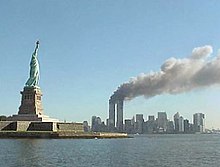
I know those terrorists don’t care about my leftist philosophies. I know they’ll kill me just as soon as they’ll kill anyone else matter of fact. Terrorist attacks are now my new number one fear! ~ Aaron McGruder

- Terrorist villains were a popular go-to in the 15 years preceding 9/11. Many films, like Air Force One (1997) and Die Hard (1988), featured Eastern European and Russian terrorists with more of a Cold War bent, depicting a Soviet-themed antagonist as something that felt real but no longer presented an existential threat. Others, like True Lies (1994), produced in the aftermath of the 1993 World Trade Center bombing, featured Arab terrorists — a topical threat at the time, but ultimately not a real danger to American hegemony.
After 9/11, terrorism was a topic no longer to be joked about, a trend that persists to this day. Friends had a significant edit in the episode "The One Where Rachel Tells Ross," in which Chandler is taken into custody by the TSA after making a quip about bringing a bomb onto a plane; that scene was removed. Films like The Bourne Identity (2002), whose plot featured terrorism and a villainous CIA, were extensively re-edited and reshot, not just for the terrorist elements but for fears that a villainous CIA might be seen as anti-American.- Lindsay Ellis, "Movies, patriotism, and cultural amnesia: tracing pop culture’s relationship to 9/11", Vox, (updated Sep 11, 2017).
- Huey squeals to the Feds’ terrorism hotline -
- Huey: Why do you keep hanging up on me? I’m telling you the truth!
The CIA trained Osama Bin Laden in using terrorism against the soviets during the Reagan-Bush administration they gave the Afghanistan rebels countless amounts of covert funding! - FBI: Don’t you have better things to be doing?
- Huey: Better than fighting terrorism? Heck no! We’re at war!!
- Aaron McGruder, The Boondocks, (10/5/2001)
- Huey helps the FBI wage war on terrorism
- Huey: Wait, before you hang up. I have one more important tip!
G.W. Bush gave the Taliban government $4.3 million this May! This May!! How much of that money will be spent on weaponry that will be used against U.S. soldiers? - FBI: Wow – I didn’t know that …
- Huey: He lives at 1600 Pennsylvania – hey, are you writing this down? And I suggest bringing really tight handcuffs.
- Aaron McGruder, The Boondocks, (10/8/2001)
- Huey: Speaking honestly is not being insensitive. You think I’m not scared like everyone else? I’m scared to death!
I know those terrorists don’t care about my leftist philosophies. I know they’ll kill me just as soon as they’ll kill anyone else matter of fact. Terrorist attacks are now my new number one fear!
- Caesar: What was the old number one fear?
- Huey: Vivica Fox beating me up. She seems like the violent type.
- Aaron McGruder, The Boondocks, (10/10/2001)
- FBI: FBI terrorism tip line.
- Huey: It’s Huey again. Got another hot lead on a terrorist.
- FBI: Lord…Huey, we don’t have time for this. I’m hanging up.
- Huey: Wait! I got a good one this time!
- FBI: (sigh) .. (Uh-huh…
- Huey: Kissinger, Henry, Former secretary of state under Nixon, allegedly responsible for the deaths of about 950,000 civilians in Laos and Cambodia in the early 1970s.
if you’re having trouble finding him, ask the guys who gave him the Nobel peace prize.
Hello?- Aaron McGruder, The Boondocks, (1/22/2002)
- Counselor Troi: He needs your strength right now.
- Capt. Jean-Luc Picard: History has shown us that strength may be useless when faced with terrorism.
- Deanna Troi as interpreted by Mirina Sertis and Jean-Luc Picard as interpreted by Patrick Stewart in "The High Ground", Star Trek: The Next Generation, (January 29, 1990); written by Melinda M. Snodgrass
- Lt Cmdr. Data: Sir, I am finding it difficult to understand many aspects of Ansata conduct. Much of their behavior would be defined by my programme as unnecessary and unacceptable.
- Capt. Jean-Luc Picard: By my programme as well, Data.
- Lt Cmdr. Data: But if that is so, Captain, why are their methods so often successful? I've been reviewing the history of armed rebellion, and it appears that terrorism is an effective way to promote political change.
- Capt. Jean-Luc Picard: Yes, it can be. But I have never subscribed to the theory that political power flows from the barrel of a gun.
- Lt Cmdr. Data: Yet there are numerous examples when it was successful: the independence of the Mexican state from Spain, the Irish Unification of 2024, and the Kenzie Rebellion.
- Capt. Jean-Luc Picard: Yes, I am aware of them.
- Lt Cmdr. Data: Then would it be accurate to say that terrorism is acceptable, when all options for peaceful settlement have been foreclosed?
- Capt. Jean-Luc Picard: Data, these are questions that mankind has been struggling with throughout history. Your confusion is… only Human.
- Jean-Luc Picard as interpreted by Patrick Stewart and Data as interpreted by Brent Spiner in "The High Ground", Star Trek: The Next Generation, (January 29, 1990); written by Melinda M. Snodgrass


